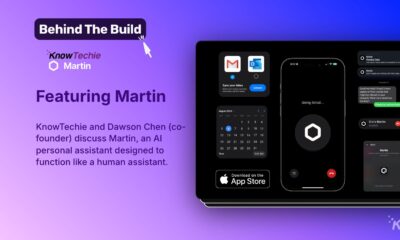News
Futurist says smartphones will be extinct by 2040. We’re calling B.S.
The futurist goes on to state that mixed-reality will start to replace phones by 2030.

Just a heads up, if you buy something through our links, we may get a small share of the sale. It’s one of the ways we keep the lights on here. Click here for more.
Trying to predict the future of technology is often a fool’s game.
Even within the past decade, it’s not hard to find examples where people staked their name to an idea only to be proven immensely (and hilariously) wrong.
Remember Google Glass? Or when laptops came with 3D screens?
Still, some predictions are so audacious you can’t help but take notice. A good example of this landed in my inbox just a few hours ago.
Dr. Ian Pearson, who spent almost 15 years working as the in-house futurologist for UK telco giant BT, claims that smartphones are an endangered species.
The prediction — courtesy of UK second-hand tech reseller, Back Market — claims that by 2025, the pace of new smartphone releases will slow to a trickle. By 2030, mixed-reality devices will start to replace phones.
And the wildest part? By 2040, Apple will “become jewelry merchants as advancements in wearable tech force mobile phones into extinction.”
The future of mobile
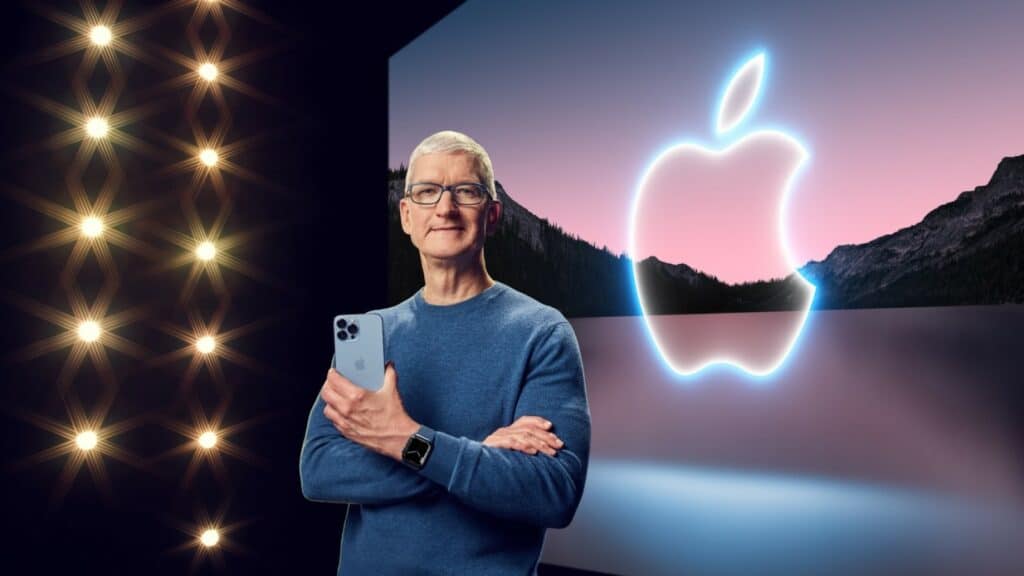
Back to Dr. Ian Pearson. Let me be clear — I mean no disrespect to him. He’s a smart cookie. He’s a Ph.D. with degrees in Maths and Physics, according to his bio. I’m not.
In fact, I dropped out of my Master’s program after two weeks — although that likely had something to do with the fact that working a full-time job and while also studying full-time is really fucking hard.
Pearson has over 1,900 inventions, including the active contact lens and, purportedly, text messaging.
Obviously, the last bit deserves scrutiny. In 1991, Pearson published a document that described how to send text messages through landline phones.
In reality, the telecoms industry started work on SMS messaging in 1982 — almost one decade earlier. Pearson’s work relates to a use-case that never took off, and for obvious reasons.
Who wants to send a text from a communal device where you have no privacy? What’s the point of an SMS service that doesn’t work outside your home?
Moreover, what even is an SMS? When you take away the complexity, it’s just a bunch of letters and numbers sent through a network and displayed on a computer. Like the kind sent by BNN engineer Ray Tomlinson in 1971.

SMS is on the way out
From Apple’s iMessage to Google’s RCS standard, traditional SMS communication is slowly being phased out.
Pearson is smart. He’s accomplished. Even though his SMS work missed the mark, he obviously grasped the role technology (and networks) would play in our lives. While that seems obvious now, it wasn’t in 1991.
And yet, I think he’s missed the mark here.
Three swings, two (and a bit) misses
Let’s go through the predictions one-by-one. First, he claims smartphone manufacturers will drastically slow the release of new devices by 2025.
He’s right here, but not for the reasons he presents. Companies will make fewer models going forward, but not because we’re on the cusp of a mixed-reality future. It’s because of simple market fundamentals.
Two things you need to understand. First, people are waiting longer and longer to upgrade their phones. In 2019, the typical iPhone upgrade cycle was estimated to be around four years.
Android devices have a shorter lifespan, albeit one that has improved over the years. This is, in part, due to better access to software upgrades and a growing consumer preference for mid-to-high-tier devices.
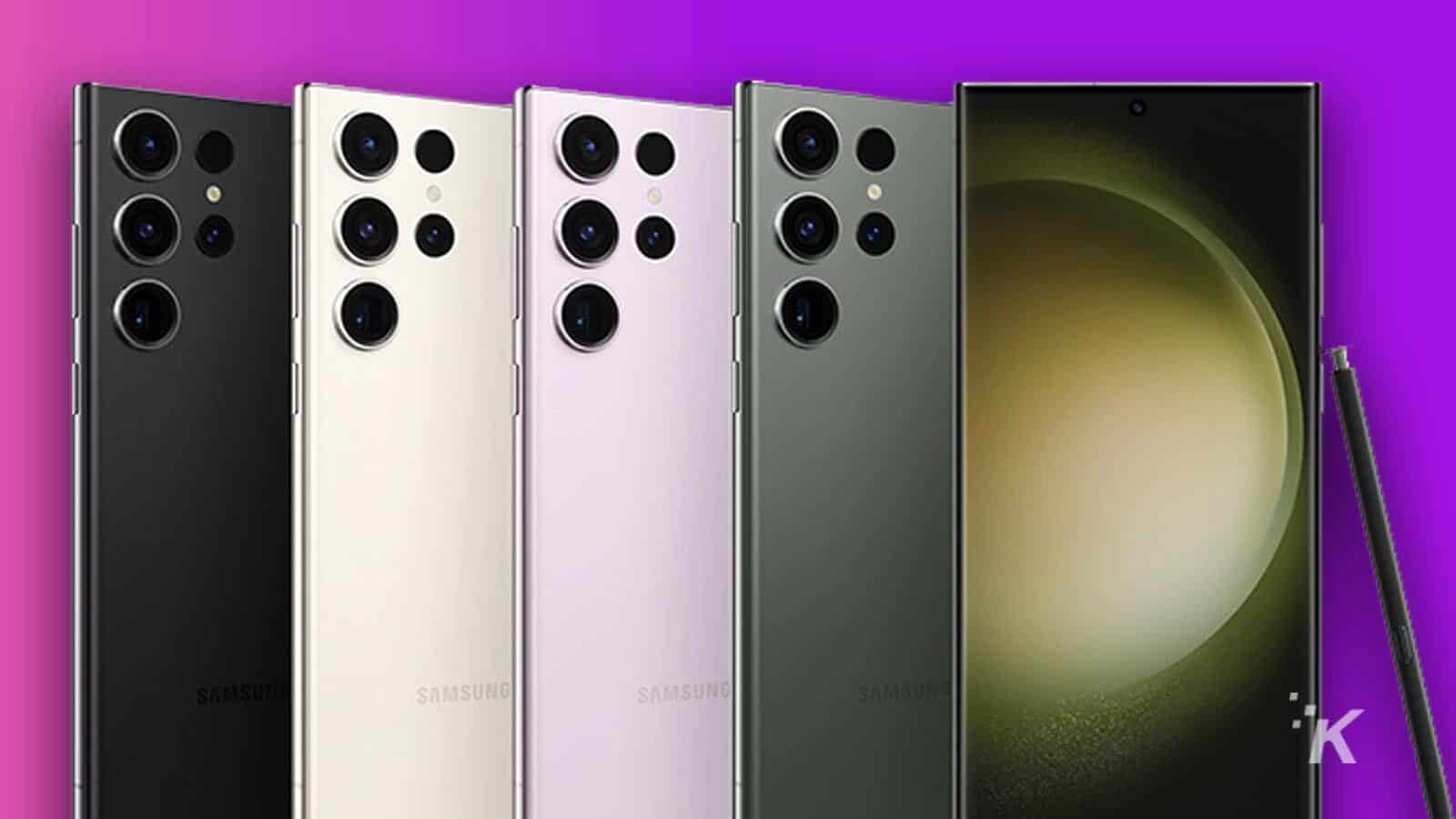
That last bit is really important. People are spending more on their phones, and so, they expect them to last longer.
According to one survey commissioned by the UK government, under 20 percent of Brits spent less than £300 (roughly $360) on their mobile devices.
That figure is likely higher in the US, where Samsung and Apple reign supreme, and where brands like Xiaomi and Oppo are absent.
Here’s the point I’m trying to make: if sales are down, then it logically follows that smartphone companies will also slow down making new devices.
Similarly, if people are spending more on high-end phones, it makes sense for manufacturers to focus on these devices.
Companies can’t win by spraying-and-praying. They need a big, splashy release once or twice a year.
A mixed-reality, wearable future

I’m grouping the next two predictions together as one. As a reminder, Pearson believes that the smartphone industry will switch to wearable mixed-reality devices by 2030, and Apple will be a jewelry company by 2040.
To be sure, wearable and mixed-reality technology will be a major facet of the technology landscape in the future. But screens are still good for… well… everything. Typing. Viewing media. You get the idea.
That same UK Government-commissioned study mentioned earlier lists screen size as the primary driver behind a purchase.
This isn’t particularly surprising. The first iPhone had a dinky 3.5-inch screen. The latest iPhone 14 Pro Max has a 6.69-inch display. Clearly, the biggest the screen, the better.
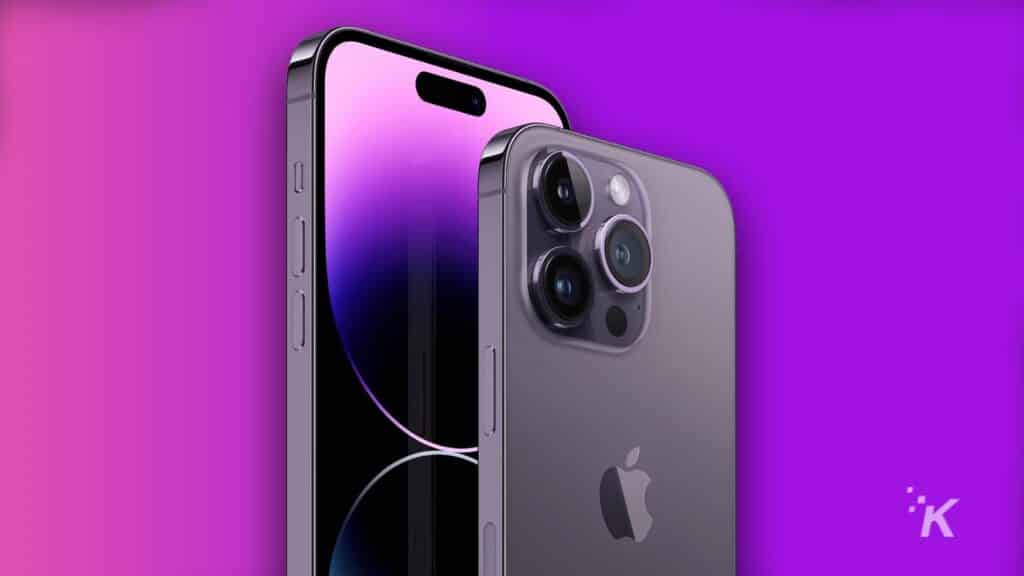
But it’s more than size. The newest phones have incredible displays. They’re rich, bright, and boast incredible color fidelity. Or, put it another way: colors look like they should.
While this might change in the coming years, current mixed-reality headsets can’t deliver a comparable experience.
If you’ve ever used an AR headset — like Microsoft Hololens or a Google Glass wearable — you’ll know what I mean. Things just look… off.
Usability and privacy
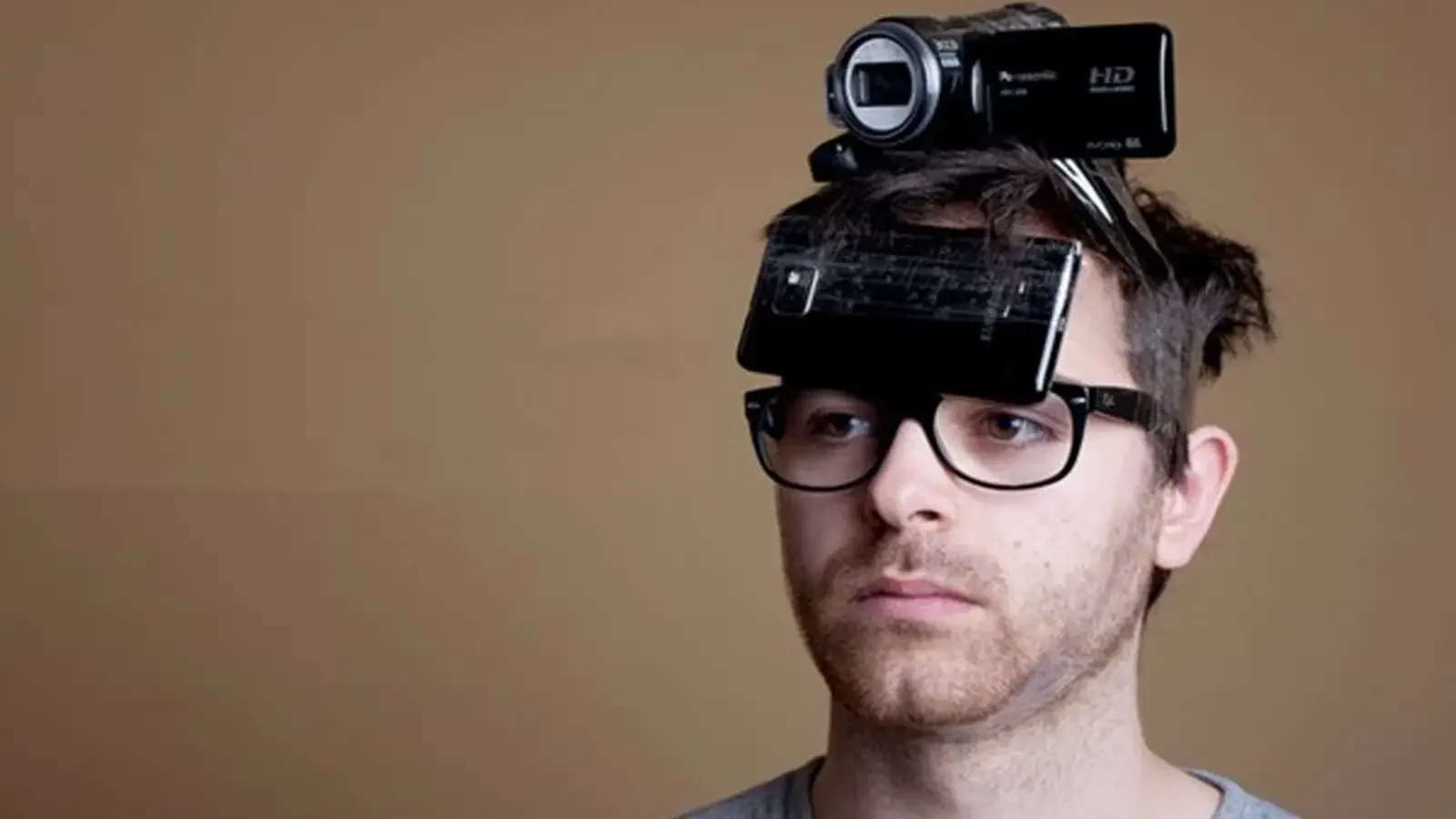
Two more points: Wearable devices don’t have keyboards. That means you’ll have to voice dictate everything.
Ask yourself: Would you be comfortable reading a private work email to everyone on the train? Do you think your fellow commuters want to hear your “it’s not you, it’s me” text message to your soon-to-be ex-partner?
Also, they creep people out. We tolerate smartphones because you can put them away. The same isn’t quite as true with a face-worn headset.
Sure, you could fold your Google Glass into its case, but most of the time, it lived on the wearer’s face.
Every time they bought a coffee, or had a conversation with a colleague around the water cooler, a camera was pointed at the other person’s face. It’s intrusive in a way normal smartphones simply aren’t.
And so, I don’t see mixed-reality wearables achieving the same level of societal acceptance as smartphones. They’re just… weird. And I don’t see that changing. Ever.
As for Apple: sure, I’ll concede it’s a luxury goods company. But it’s different to, say, Gucci or Louis Vitton.
Apple sells devices that are attainable to most people in developed countries. The iPhone SE, the entry-level iPad, and the Mac mini are all great examples. The idea that it’ll become a “jewelry merchant” is just, frankly, absurd.

Apple doesn’t shy away from costly products
If you deck it out completely, Apple’s latest MacPro Pro boasts a staggering price tag.
More importantly: usability and productivity matter to Apple. It doesn’t make toys or status symbols. It’s a technology company, and some of its biggest customers are large enterprises, where productivity matters.
How the sausage gets made
Look, I’ve worked in tech media for almost a decade. I’m intimately familiar with these types of pitches.
A company will sponsor a survey (which is usually so flawed that it’s practically worthless) or hire a spokesperson to say something provocative. Then they’ll blast the results to a massive media email list.
The goal is invariably to generate buzz — or, at the very least, backlinks — for the company sponsoring the research.
If that sounds lazy and opportunistic, that’s because it often is.
When I worked at The Next Web, I received an email from a payday loan company that talked about the wasteful spending habits of millennials. “A daily post-commute Starbucks? Tut tut.”
That company, I note, loaned money (often to the poorest and least able to repay) at interest rates of 1,575 percent. That isn’t a typo. Almost 1,600 percent.
The lack of self-awareness was mind-boggling. Naturally, I told the PR flack to find a job with a company that isn’t so transparently evil. I hear Monsanto is hiring.
Journalists — overworked and under pressure — often repeat the content of these emails without actually offering any real scrutiny to the pitch.
If you’ve seen half your colleagues laid off, and you’re under strict orders to produce five pieces of content each day, you ain’t going to be too choosy. Write, publish, repeat.
Bullshit baffles brains
If I sound cynical, it’s because I am. I’m depressed about the declining standards in the media.
I read my local newspaper and see articles that are essentially re-written Reddit threads or thinly-veiled advertisements.
“Mango shoppers ‘obsessed’ with ‘perfect’ £50 heels,” reads one post. Translation? A woman on
“’Ignorant’ woman slammed for calling boyfriend’s stir fry ‘lonely man food.” screams another. This was a retelling of a thread on the CasualUK subreddit. A Pulitzer awaits the author of this piece.
I beg you, dear reader. If you take anything from this article, let it be this one point:
If you see a publication report on a survey that’s sponsored by a company, click through. Look at the data and methodology and see if it stands up.
If you see an audacious prediction, like the one above, don’t get too wrapped up in it. Actually, you know, think about it. Because odds are high that it’ll be total fucking bullshit.
Have any thoughts on this? Drop us a line below in the comments, or carry the discussion over to our Twitter or Facebook.
Editors’ Recommendations:
- What is Google Bard, and how does it work?
- Spotify launches an AI DJ that talks through its music picks
- Study shows AirPods can be used as affordable hearing aids
- Apple AR/VR headset: Release date, features, and price





























